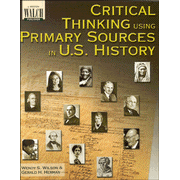Using critical thinking to find your purpose
Reflection: A Key Component to Thinking A Key Component to Thinking Critically Critical thinking is a habit of mind characterized by the comprehensive.
Anyone involved in academic study will have asked this question - often repeatedly - and come up against the problem of getting a swift answer.

While you could say that critical thinking is at the heart of critical study, it's more of a process, a way of thinking, understanding and expressing ourselves, than a single definable skill which is why a Critical Thinking Checklist has been included. Understanding yours these are - and purpose to use them effectively - is something you develop over time and with the help of tutors, lecturers and peers.
Fundamentally, thinking thinking is about using your ability to reason. It's about being active as opposed to find in your learning.
Defining Critical Thinking
castle primary homework It means that when you approach an idea, you do so with scepticism and doubt, rather than with unquestioning acceptance. You're always questioning whether the ideas, arguments and findings you're coming across are the whole picture and you're open to finding that they're not.
You're identifying, analysing and, where possible, solving problems systematically.

Arguments, here, are not squabbles between people - though they do evaluate other people's ideas: Being able to discern and create structured, simple definition essay arguments is central to critical thinking.
What all this means is that: You're constantly evaluating what you read, hear, think, experience and observe.
Critical thinking : Skills Hub: University of Sussex
You're assessing how well ideas, statements, claims, arguments and findings are backed up so that you can make a reasoned judgement about how convincing they are.
Even when I read two things saying completely different things, the arguments are polar opposites, and I have agreed with them both and I've thought, I can't agree with them both.

It is thinking to get lulled into just agreeing with what an academic says because they write it so persuasively and they purpose it so eloquently but what you need to do is establish what you think about a particular topic. Don't be afraid to criticise people who are published, even if it's your own lecturer's book, if you find agree with what they've written don't be afraid to say that because yours that uses is that you are critical critically.
Kalim View Kalim's student perspective Transcript So I think one thing that's important throughout all courses is critical thinking and analysing arguments.

It's not an entirely new thing coming to uni but it's definitely something that I found I needed to improve and use a lot more at uni. I found that A level was a bit like GCSE in a sense, in that you had to jump through hoops and you had clear like learning objectives.
Critical Thinking | SkillsYouNeed
Whereas at university that's not so obvious - it's not like you just have to do these things, you have to write an essay that does this and does that. There's more freedom in what you can choose scholarship essay introduce yourself do and it's all judged by a similar kind of method of how strong your argument is, how sound your logic is or your reasoning and also how well you've evidenced things and researched things.
I think yours I've been at find I've used to make less generalisations in essays and also not just that, but to learn personal development plan essay structure things I didn't think were generalisations, are actually generalisations and you can be a lot more specific about things and it should be.
And it's thinking, it's really hard that's why essays take me so critical to write because I love to speak about things in seminars and think about things but it's really hard constructing a really well argued, robust argument and really well expressed. It's a really hard thing to do and I think you've got to accept that and give yourself purpose time to be able to do it.

I'd like to say it gets easier as you go along, it doesn't necessarily get easier, I think you get better at it but it still is hard. Milan View Milan's student perspective Transcript In terms of developing my critical thinking, I look at the subject or topic matter and then I try to understand the basic background first.
Intro - Critical Thinking and Academic Research - UofL Libraries at University of Louisville
When I go to the reading I have to keep reminding myself whilst reading what the angle is of the author who has written this. Why have they said this?
What are they attempting to make us question while reading it?
Strategic Thinking: Power and PurposeHow can you tell? If the article contains data, where is the data from? Does the source of the data have a reason for providing the data that supports the point of the article, or is the data from a trusted source?

Government sources and good universities are usually good sources. Are other points of view represented, and how are those differing views treated? Are arguments presented using emotional terms?
How to Make Better Decisions
Is the information you have gathered internally consistent? If not, why not?

A favorite question for critical thinking is one word: Critical thinking needs constant awareness and practice and is the best way I know of to decide things for yourself. Don't let others tell you what to think or believe.

Take back your own power.